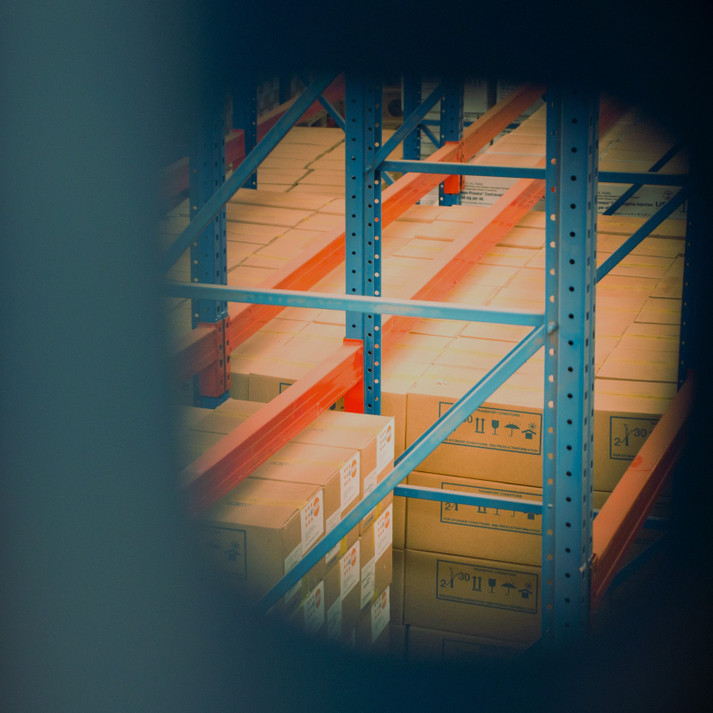Supply chain traceability and it's importance
22nd Aug 2024
Supply chain traceability incorporates all supply chain elements, from inception to reaching the end consumer, and covers end-of-life activities, e.g., recycling or reselling. Employing this means that manufacturers can track their products end to end. The days of linear supply chains are long gone, and companies are now operating with more circular supply chains with an increased focus on lowering costs and keeping landfill waste to a minimum.
Many of today’s companies have highly complex, multi-level supply chains with numerous companies/suppliers working within, making complete traceability increasingly important. Not only to allow companies to have accountability and keep control but also to show that at each step of the design/production/delivery process, they are following correct procedures and using genuine parts.
Alongside traceability is transparency, and while each focuses on different things, they go hand in hand and are arguably of equal importance when managing and operating in complex supply chains. Specific standards/ regulations must be adhered to in certain industries, meaning traceability is vital. For example, in the food industry, following the movement of ingredients through the production, processing, and distribution stages is something that food manufacturers are already used to.
In today’s highly competitive world, the need to be transparent is more vital than ever before. Providing your customers with a detailed account of the lifecycle of your product will soon become an expectation, and companies need to have the ability to do this.
Why is traceability so important?
 It allows companies to monitor each step of their production process and will enable them to optimize their operations based on the information gathered at each stage. It also assists companies in meeting regulatory requirements and providing information to the consumer to tell them about the product’s ‘journey.’ Not forgetting that traceability also allows companies to make and verify any sustainability claims they make.
It allows companies to monitor each step of their production process and will enable them to optimize their operations based on the information gathered at each stage. It also assists companies in meeting regulatory requirements and providing information to the consumer to tell them about the product’s ‘journey.’ Not forgetting that traceability also allows companies to make and verify any sustainability claims they make.
 There is also the huge advantage of using traceability and transparency to prevent counterfeit components from circulating. As discussed in previous blogs, the electronics industry is no stranger to counterfeit goods; more than ever, it is vital to prove the authenticity of components.
There is also the huge advantage of using traceability and transparency to prevent counterfeit components from circulating. As discussed in previous blogs, the electronics industry is no stranger to counterfeit goods; more than ever, it is vital to prove the authenticity of components.
 Supply chain disruptions are a great example of when companies can benefit from having traceability systems in place. Take the example of when the Suez Canal became blocked by a cargo ship – those companies who could track which vessel their products were on had a better chance of rerouting their shipments to avoid the blockage.
Supply chain disruptions are a great example of when companies can benefit from having traceability systems in place. Take the example of when the Suez Canal became blocked by a cargo ship – those companies who could track which vessel their products were on had a better chance of rerouting their shipments to avoid the blockage.
What does traceability look like in the electronics industry?
Traceability is increasingly important in the electronics industry and is becoming well-used by manufacturers, not least when adhering to regulatory compliance. Due to the vast number of industry standards and regulations, manufacturers must demonstrate that they meet these requirements. There is also the liability and warranty aspect of manufacturing; again, traceability comes into play here as it allows manufacturers first to identify and then address any issues post-sale, which helps establish and grow a company’s reputation.
Should there be a need for a product recall, companies can use all the information gathered during the production process to determine where the issue may lie. Take the example of Samsung, whereby they had to initiate a vast product recall because there was a fault with the battery in certain products, which caused the unit to overheat and combust. By tracing back the components used, they could identify the faulty parts and recall all phones made using them.
Honesty, integrity, and transparency are core values here at Tencell. All the components we supply are fully traceable and always 100% genuine. Contact us at sales@tencell.com to discuss how we can provide the parts you need.
